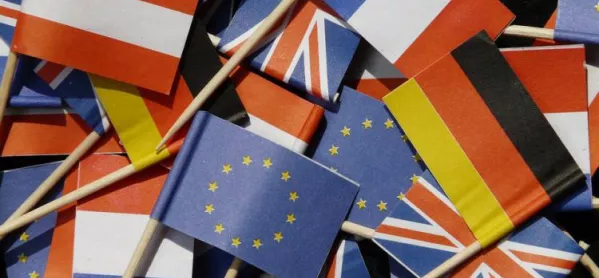The news that Britain has voted to leave the EU has been greeted with a variety of strong responses by my French teaching colleagues here in Toulouse. None of these, it must be said, are personally directed against colleagues from the UK, who were all, predictably, strongly within the “Remain” camp: after all, as well as benefitting from the free movement of labour, many of us have French spouses and bilingual children who have grown up regarding nationalism as a dirty word.
One French colleague reacted with total bewilderment: “Have they no sense of history?” they asked, referring to the genesis of the EU in the attempt to replace national rivalries with cooperation after the Second World War.
Another shrugged his shoulders and said in no uncertain terms that the UK had never really been part of the EU anyway: it had always engineered a “best of both worlds” favoured place for itself and, frankly, the divorce was well overdue.
Confusion reigns
Beyond this, the response among UK teachers here has been confusion: David Cameron ominously “reassured” us this morning in his Downing Street speech that there would be “no immediate change to our circumstances” as UK nationals working within the EU, but this rather begs the question - what happens in the longer term? Will we still be allowed to work in Europe, and if so on what terms?
Two colleagues I have spoken to are already hastily gathering the paperwork to apply for French nationality, aware that without being members of the EU our status within the country and with our French families could be fundamentally altered unless we take measures to protect ourselves.
Similar feelings prevail elsewhere, with one colleague saying that, “It looks like lots of us will remain in the Middle East for the foreseeable future due to the uncertainty now at home.”
Outside of the confines of my own school, members on the Facebook support group for international history teachers have been debating the meaning and likely ramifications, too. The general view appears to be one of sadness.
“Nationalism is such a crazy concept and we continue to suffer from its effects,” said one American colleague working in Albania.
“I’m mortified. I feel as if my parents just got a divorce. My European heart is broken… isolationism, fragmentation, fearmongering, scapegoating and populism can lead to crises,” said another teacher in Australia.
‘Never returning home’
Nevertheless, as is the nature of history teachers, alternative perspectives were also provided: one Canadian teacher said, “Maybe I don’t know enough about Brexit, but most Canadians are very proud of their sovereignty.” They went on to explain that the notion of sacrificing this to supra-national organisations was alien to their way of thinking.
Another in Africa said, “I do agree that the EU has been a force for peace, but arguably you could say Europe has been peaceful because of NATO, and the defeat of Germany in 1945, more so than because of the creation of the EU.”
But what about the children? For many teachers in international schools with a strong UK contingent, there has been a lot of upset and a lot of confusion today - and a lot of time taken out of lessons to discuss and debate the reasons for Brexit and its likely consequences for the world, for a UK now more divided than ever, and for their schools.
A colleague in China told me that she was part of “a shocked faculty here in Beijing”.
“Today was our last day of term and it made for a very sombre way to finish the year. One of our IB history students likened it to reliving the “Rise to Power” section of their “Authoritarian States” unit. We knew it would be close but the feeling was that sense would prevail. It did not. People spoke of now never returning home.”
I’ll leave the final word to my wife, a teacher of French and German: “I’ll do everything I can to raise my children as European citizens, citizens who will be able to move freely from one country to another, embrace other cultures, learn other languages. I’ll teach them that my grandparents had to change nationality (against their own will) four times in their lives because they happened to live on the French/ German border. I’ll teach them that my father (their beloved grand-père) was forced to join the Hitler youth at the age of 7 but managed to avoid it because his own father stood up against it. The European Union is not just about economics, trade and politics. It is far from perfect but at least it gives us peace. Is that not worth anything?”
Russel Tarr is a history teacher at the International School of Toulouse. He tweets @russeltarr
Want to keep up with the latest education news and opinion? Follow TES on Twitter and like TES on Facebook

